Most voters skip off-year elections. Boise’s 2023 turnout was surprising. What happened?
- Oops!Something went wrong.Please try again later.
For the first time in a citywide election, Boise’s electorate was sliced up into districts. Instead of choices for three at-large council members, ballots around Boise asked voters to make one choice to represent their area, along with their choice for mayor.
Election results showed Boise voters came out to the polls in record numbers for an off-year election to give Mayor Lauren McLean a decisive win over Mike Masterson and the backing of a favorable slate of City Council winners. Early analysis shows the new district system appears to have boosted turnout in neighborhoods.
New system puts campaigns in previously ‘overlooked’ areas
Boise’s district system is the result of a 2020 law passed by the Idaho Legislature. The abrupt shift to a district system for cities with over 100,000 people caused headaches for Boise’s government, and could have resulted in litigation, as officials scrambled to abide by the new law.
The city hired a consultant to draw district maps in 2021, and three council members were elected by district to two-year terms.
In 2022, a citizens’ commission redrew the six districts, which was used this month to elect all six council members.
Boise State University Police Science Professor Jeffrey Lyons said the geographic boundaries focused campaigning in specific neighborhoods, which may have helped to boost voter turnout.
“This forces those City Council races to be held entirely in those places,” he said. “So you’re guaranteeing a level of campaign activity in some of those parts of town that could have been more overlooked previously.”
Campaign sees higher turnout in West Boise
City Council candidates knocked on thousands of doors and sent out mailers in October and early November, hoping to boost turnout in their favor.
A preliminary comparison of precinct data from 2019 with district data from this year indicates that turnout was higher this year in parts of West Boise and Southwest Boise. Lyons said those areas historically have lower turnout.
Turnout in precincts in western portions of Boise in 2019 ranged from 20% of registered voters to 35%, and was above 40% in at least one precinct.
This month, turnout in District 3, which covers Southwest Boise, was 40.2%, and it was 42% in District 2, which covers the West Bench south of Garden City. In District 2, Colin Nash defeated Hillary Smith, Grant Burgoyne and Jesse Gonzales. In District 3, Kathy Corless defeated Josh Johnston, Theresa Vawter and Chris Blanchard.
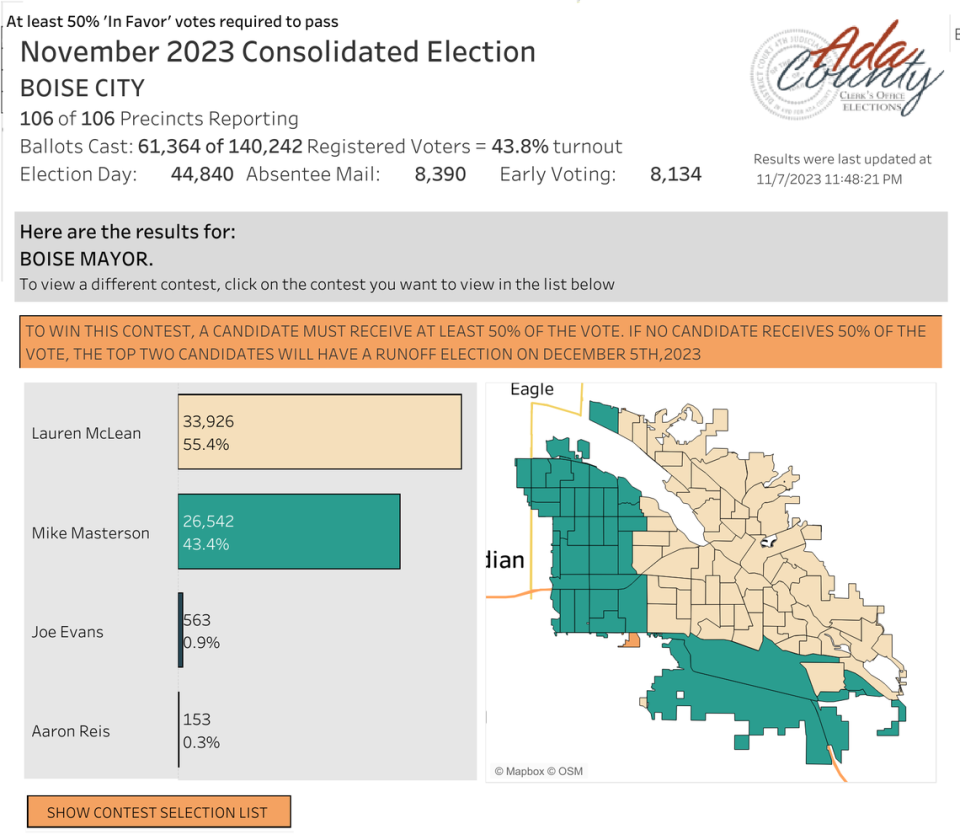
More than 61,000 people cast a vote for a mayoral candidate in Boise this year. That’s more than 9,500 more votes than were cast in the November 2019 election and is a record for an odd-year election, according to a spokesperson for the Ada County Clerk’s Office, Nicole Camarda. (The 2019 mayoral race, which elected McLean over incumbent David Bieter, required a December a runoff, which had less turnout: 46,304.)
Citywide, 43.8% of registered voters voted in this election, compared with 33.4% in 2019.
Since 2019, Boise’s population has grown by more than 7,600 people, according to estimates from the U.S. Census Bureau, which could account for some of the increase.
“One of the hypotheses for a long time is that the district approach would help to increase voter engagement,” Lyons said. “That possibly could be part of the story.”
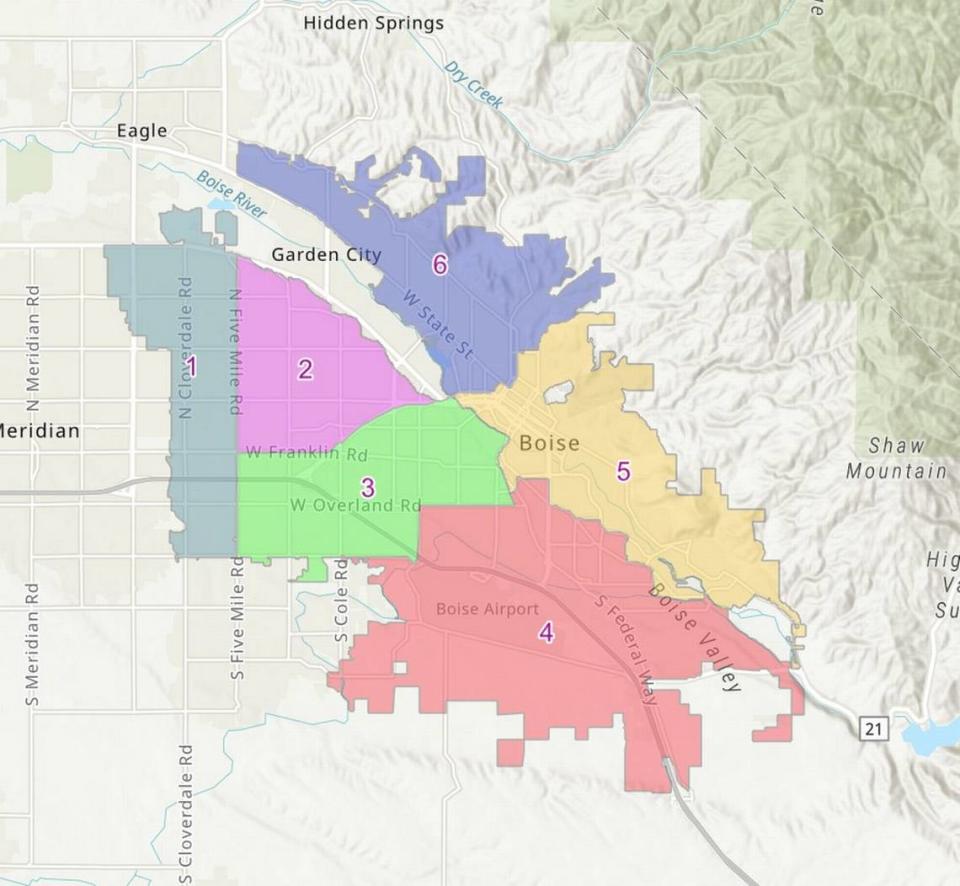
McLean’s campaign manager, Melanie Folwell, told the Statesman that preliminary data indicates turnout was higher than is standard in West Boise.
Folwell, who runs the campaign consulting firm Scrap Shop, also led the campaigns of three McLean-aligned candidates on the ballot this year, all of whom won.
Ideological shift didn’t materialize
The Legislature’s districts requirement promised to shake up the composition of the City Council, which has long been dominated by residents of the North and East Ends. When the districts were first drawn, half the council was in the same district, and this year all but one incumbent would have had to run against one of their colleagues, had several members not either resigned to pursue other careers, opted not to run again or lost their seats since the start of the year.
The district mandate also led to speculation in Boise that boundaries could shift the ideological makeup of the council by bringing more conservative candidates to City Hall, where despite nonpartisan races, Democrats and progressive-minded members have controlled the council for years.
Returns from past partisan elections show that conservative voters in Boise are generally concentrated in the west and southwest. In 2020, Joe Biden won handily in most Boise precincts, but former President Donald Trump took the most votes in a few precincts close to Boise’s borders with Meridian and Eagle.
That speculation bore fruit in 2021, when Republican Luci Willits became the first GOP member since Scott Ludwig finished his term in 2020. Willits represents West Boise and ran unopposed this year after winning a two-year term in 2021, so her race was canceled this year, per state law. (In the North End and Northwest Boise, Jimmy Hallyburton won a second term after his District 6 race was also canceled.)
But a wider shift in the political makeup of the council did not materialize.
“I can speculate that that was the Idaho Legislature’s intent, but they didn’t seem to be effective in that,” Folwell said.
How did your neighborhood vote in the mayoral elections? Check it out with these maps
Candidates backed by McLean won in every race except one. And in that one, in District 3, the winner, Kathy Corless, a Democrat, was not explicitly endorsed by McLean but said she supports the mayor’s policies. Corless also appeared on a mailing with McLean featuring Planned Parenthood endorsements.
“Every candidate in each council district who said that they were supporting Mayor McLean won,” Folwell said. The results were a “strong statement on Boise’s ideology,” she said.
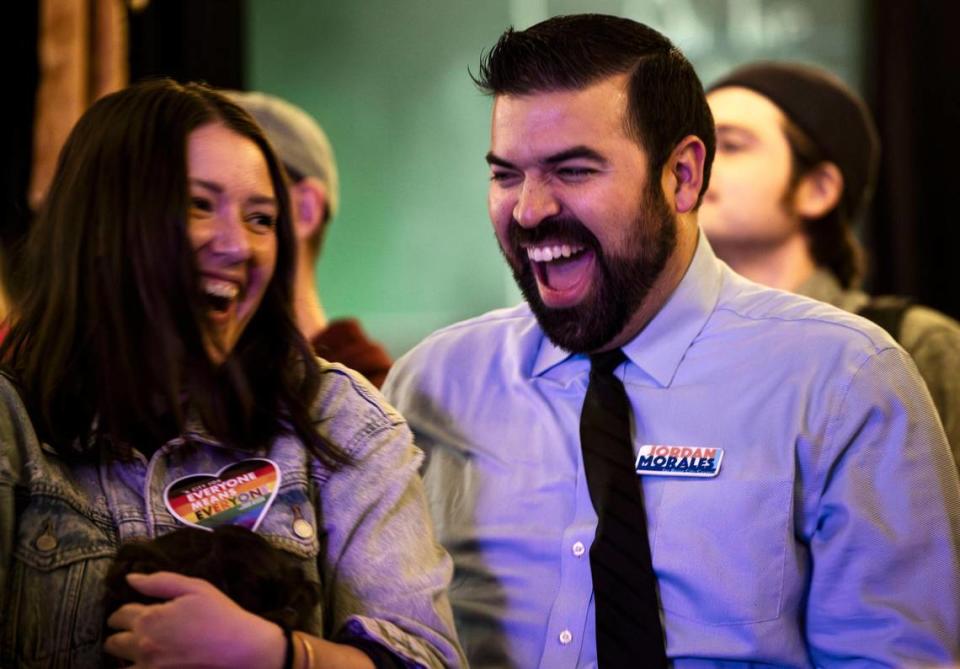
Corless won by 15 votes, 2,566 to 2,551, defeating Republican Josh Johnston. Two other candidates, Theresa Vawter and Chris Blanchard, won 20.9% and 13.6% of votes, respectively. Corless’ slim win could result in a recount if Johnston requests one.
In the three other races, candidates aligned with McLean won by wide margins. The closest was in the West Bench south of Garden City in District 2, where Colin Nash, whom McLean appointed to the council this year, beat a conservative challenger, Hillary Smith, by more than 12 points, and Grant Burgoyne, a Democratic former state senator, by more than 28 points.
Nash told the Statesman he is considering stepping down from the Legislature, where his term runs through next year’s legislative session. If he resigns, a Democratic committee would submit three names to Gov. Brad Little, who would select a replacement, Nash said.
In a campaign video from October, Nash, an attorney with two young children, said part of the reason he ran for City Council was because he “simply cannot afford” to take four months off of work during the legislative session. Boise City Council members work part-time throughout the year.
Despite the wins for McLean-aligned candidates, Lyons said the new districts could still change how winners approach their work.
“Perhaps it’s the case that the candidates who are elected from the more conservative parts of Boise may vote a little bit differently on the City Council,” he said, adding that they will be hearing from a “different subset” of voters.
McLean campaign says race was about turnout
McLean’s volunteers knocked on more than 55,000 doors this election, work that gave the campaign data on more than 22,000 voters’ preferences, Folwell said. There are more than 140,000 registered voters in Boise, according to the Ada County clerk’s office.
In October, Folwell told the Statesman that McLean’s campaign was aiming to win at least 55% of the vote with more than 30,000 ballots in a race with at least 60,000 voters. On Election Day, McLean won almost 34,000 votes out of 61,364, or 55.4%.
“We had a pretty good sense of what we needed to deliver on, and we went after those votes,” Folwell said.
Folwell said McLean won despite some “stiff headwinds” and said her backing in City Council races is a “powerful mandate.”
She added that one significant difference between this year’s race and the 2019 mayor’s race was the number of undecided voters.
While a large number of voters were undecided about who they planned to vote for in 2019, only a tenth of voters the campaign encountered this year said they were undecided, Folwell said.
“This wasn’t really a persuasion election as much as this was a turnout election,” she said.
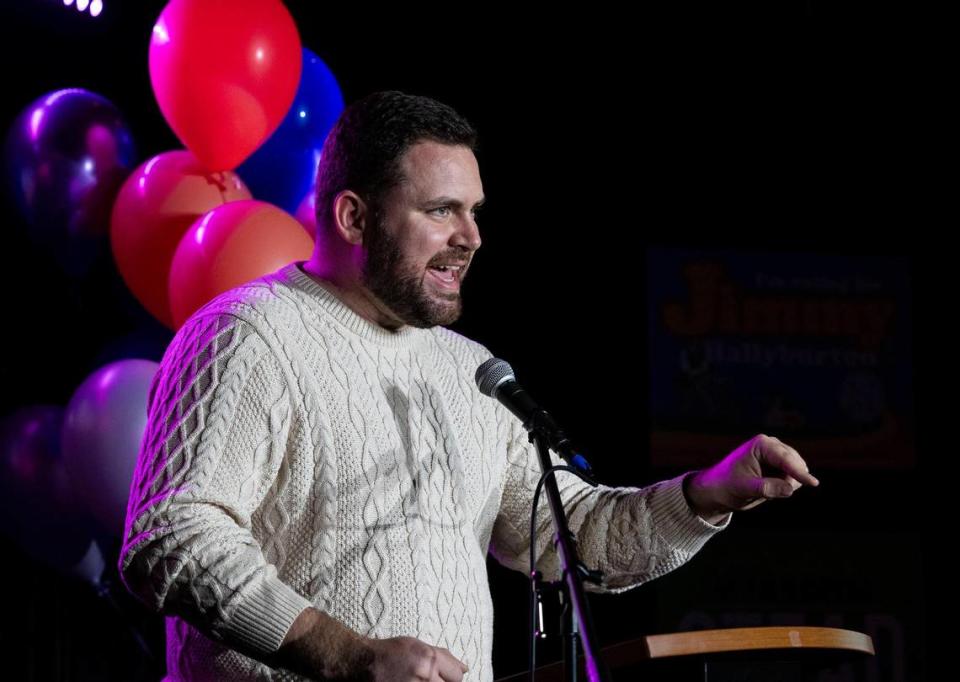
The 2019 race pitted two Democrats — former Mayor David Bieter and McLean — against each other, which Lyons said may have made it more difficult for some voters to differentiate between them.
In this year’s race Masterson, a former Republican, ran a campaign as an “independent centrist.” The city’s approach to social issues like abortion was debated by both candidates. McLean ran on LGBTQ+ rights and support, while Masterson disavowed ads from a political action committee criticizing McLean’s stance.
Lyons said that reality could have made the contrast “a little starker.”
“Because of that, it may be the case that you’re looking at folks who have made up their mind earlier in the race,” he said.
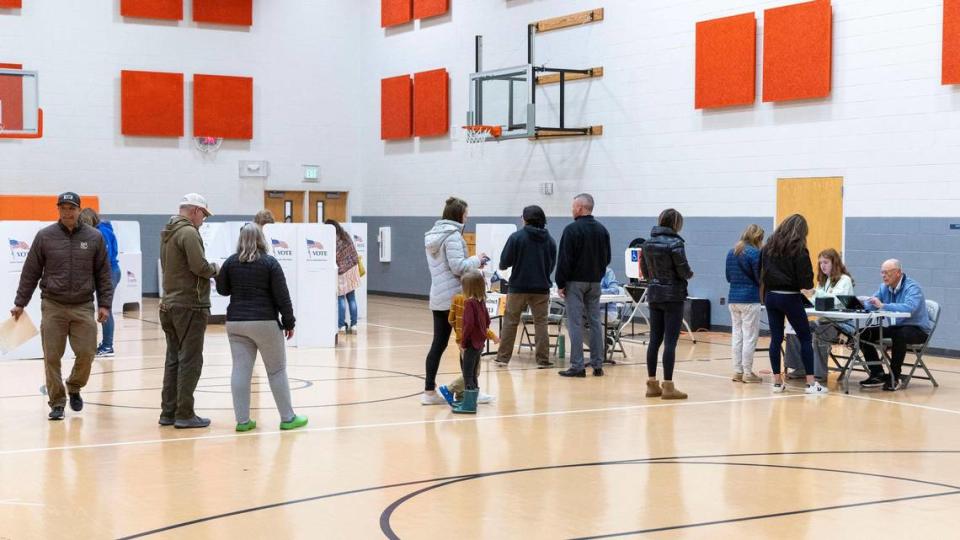
A spokesperson for the Masterson campaign did not respond to a request for comment.
The election results and victories for progressive candidates may also reflect the persistent base of voters.
“It doesn’t matter how you carve (the city) up with lines, you’re still getting Democratic places,” Lyons said.

